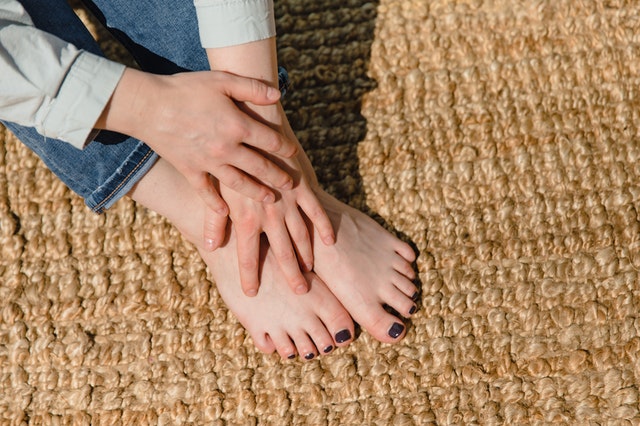Contents
What are Hives?
Hives are a common illness that can affect people from all walks of life, including age, gender and ethnicity. Hives are an irritated rash or skin condition that can appear on the body – in acute cases they can last from hours to days, in chronic conditions, they can last for months. Hives in some cases can be a sign of a severe allergic reaction and/or anaphylaxis, which is life threatening. They are difficult to identify, meaning it is important to seek medical advice if you, or someone you know, may have hives.
What causes Hives?
There is no one specific cause for hives. There are numerous factors that can contribute to contracting hives, and these vary across the board.
It can be difficult to pinpoint an exact cause for hives but a doctor can help you narrow it down. Some causes include:
- Infection. When suffering from a virus, children can contract hives as a sign of the body becoming more aware of bacteria in the body.
- Allergies. A common symptom of an allergic reaction is an itchy, irritated rash – like hives. Hives can begin to flare up within 1-2 hours of the allergic reaction and disappear within 6-8 hours depending on the severity of the reaction.
- Seasonal changes. Hives can be triggered by seasonal changes, including cold air and exposure to the sun. Seasonal allergies also contribute to this.
- Stress. This is a rare cause of hives, however it is possible. Generally, when you are under pressure or stress or even isolated stressful situations, hives can present itself.

What are the symptoms of depression?
Symptoms of hives can develop over a matter of hours. Hives are difficult to identify, and can at times, appear as a harmless rash. It is important to seek medical advice if you are unsure if you have hives or not.
Note: If you are suffering from any of the below symptoms, but aren’t sure if you are suffering from hives, it pays to take action immediately. If you aren’t suffering from hives, your symptoms may still be treatable.
- Weals. Weals are raised, itchy swellings that develop overtime when you are suffering from hives. The condition of these weals can differ depending on the cause. In more serious cases, hives will begin to affect the rest of your body as it tries to fit off the sickness.
Who can get Hives?
People of all ages and genders can develop hives, there is no common age group that hives can be found in. However people who suffer from allergies are more likely to experience more severe cases of hives, as it is a direct reaction to an allergy. We recommend that you seek help immediately to minimise the concern of the sickness, you can do this using our online appointment service, Bettr.
How is Hives treated?
Medication – Upon assessment, your local GP is likely to prescribe you with Antihistamines. Hives are a direct skin reaction caused by antihistamine release, so this will help to relieve the itch.
Avoid Triggers – Your GP may be able to pinpoint particular triggers that are helping to bring on hives. This could include makeup, certain food, substances or additives. Avoiding these triggers may help to lessen your chance of contracting hives.
Lifestyle – Another way to treat hives is a change in diet. Your GP may recommend a particular diet that you can abide by that will help to mitigate hives, and avoid particular foods.
What do I do if I have Hives?
If you are suffering from hives, and/or any of the above symptoms, it is important you act on these as quickly as possible. If you are not sure if you are suffering from hives, it pays to get symptoms checked out, as it could be a sign of other illnesses.
Make sure to get in touch with a GP. You are able to do this through our online service, Bettr. We will set up an appointment between yourself and one of our doctors, and they will talk you through your symptoms and potential treatments. If you would like to book your consultation, please see below.
We offer same day appointments and can prescribe medications online. There is no need to download an app, or re-register with your current GP.

What we treat
Access a full suite of healthcare services
As long as it’s not a medical emergency, you can book an appointment at Bettr and get help with a wide range of healthcare services such as: ACC follow-ups, hand and foot issues, fevers, allergic reactions, rashes, skin problems, respiratory problems, coughs, cold and flu, medical certificates, oral health, mental health, and many more. For more details on what we can (and can't) treat, see our treatment services.

Enrol for more
Bettr's online doctors are available nationwide to everyone.
If you're in Auckland, Palmerston North or Christchurch, you can enrol with a clinic in our network for cheaper consults online and in-person.
If you enrol:
The price of Bettr consultations drops to $45, or $25 for CSC holders, and under 14s are FREE!
You’ll also get cheaper GP consults at your enrolling clinic, and cheaper consults at any of our Local Doctors and White Cross urgent care clinics.
*If you require face-to-face treatment following your Bettr online consult, you can be referred to one of our clinics in Whangarei, Auckland, Palmerston North and Christchurch.




